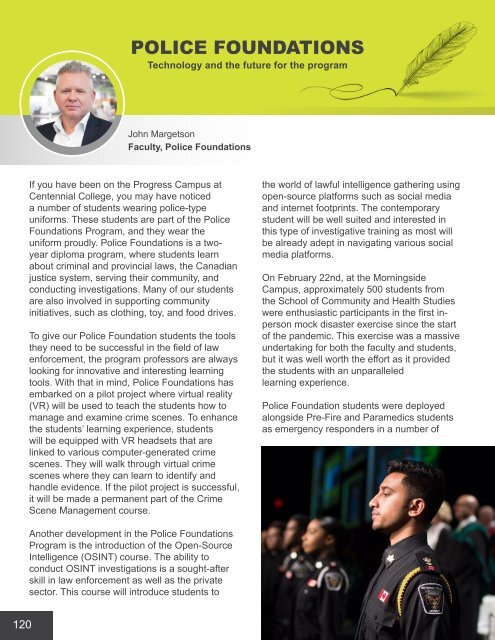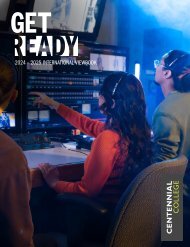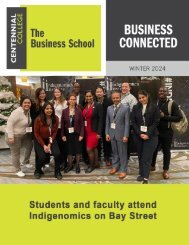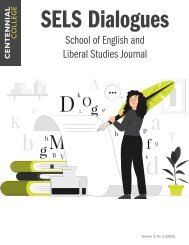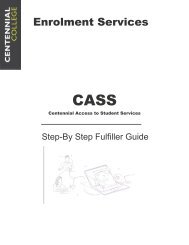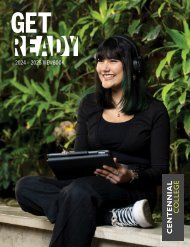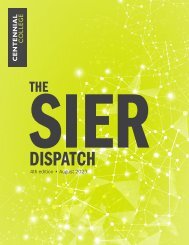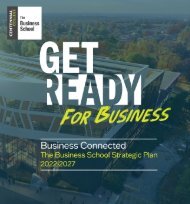The Teaching and Learning Innovation Digest - May 2023
Welcome to a truly special edition of the Teaching and Learning Innovation Digest! Our seventh annual academic publication has assumed an incredibly meaningful shape and form for a number of reasons. Not only did we receive an enthusiastic response with over 30 submissions via our institutional broadcast, but we also have consciously and intentionally embraced the principles of Universal Design for Learning by attempting to represent and celebrate the varied forms of expressions therein. From reflective essays, poetry, visual and performing arts, podcasts, video conversations to scholarly work, academic and applied research, news and updates, and interviews, this is truly a power-packed publication!
Welcome to a truly special edition of the Teaching and Learning Innovation Digest! Our seventh annual academic publication has assumed an incredibly meaningful shape and form for a number of reasons. Not only did we receive an enthusiastic response with over 30 submissions via our institutional broadcast, but we also have consciously and intentionally embraced the principles of Universal Design for Learning by attempting to represent and celebrate the varied forms of expressions therein. From reflective essays, poetry, visual and performing arts, podcasts, video conversations to scholarly work, academic and applied research, news and updates, and interviews, this is truly a power-packed publication!
Create successful ePaper yourself
Turn your PDF publications into a flip-book with our unique Google optimized e-Paper software.
POLICE FOUNDATIONS<br />
Technology <strong>and</strong> the future for the program<br />
John Margetson<br />
Faculty, Police Foundations<br />
If you have been on the Progress Campus at<br />
Centennial College, you may have noticed<br />
a number of students wearing police-type<br />
uniforms. <strong>The</strong>se students are part of the Police<br />
Foundations Program, <strong>and</strong> they wear the<br />
uniform proudly. Police Foundations is a twoyear<br />
diploma program, where students learn<br />
about criminal <strong>and</strong> provincial laws, the Canadian<br />
justice system, serving their community, <strong>and</strong><br />
conducting investigations. Many of our students<br />
are also involved in supporting community<br />
initiatives, such as clothing, toy, <strong>and</strong> food drives.<br />
To give our Police Foundation students the tools<br />
they need to be successful in the field of law<br />
enforcement, the program professors are always<br />
looking for innovative <strong>and</strong> interesting learning<br />
tools. With that in mind, Police Foundations has<br />
embarked on a pilot project where virtual reality<br />
(VR) will be used to teach the students how to<br />
manage <strong>and</strong> examine crime scenes. To enhance<br />
the students’ learning experience, students<br />
will be equipped with VR headsets that are<br />
linked to various computer-generated crime<br />
scenes. <strong>The</strong>y will walk through virtual crime<br />
scenes where they can learn to identify <strong>and</strong><br />
h<strong>and</strong>le evidence. If the pilot project is successful,<br />
it will be made a permanent part of the Crime<br />
Scene Management course.<br />
Another development in the Police Foundations<br />
Program is the introduction of the Open-Source<br />
Intelligence (OSINT) course. <strong>The</strong> ability to<br />
conduct OSINT investigations is a sought-after<br />
skill in law enforcement as well as the private<br />
sector. This course will introduce students to<br />
the world of lawful intelligence gathering using<br />
open-source platforms such as social media<br />
<strong>and</strong> internet footprints. <strong>The</strong> contemporary<br />
student will be well suited <strong>and</strong> interested in<br />
this type of investigative training as most will<br />
be already adept in navigating various social<br />
media platforms.<br />
On February 22nd, at the Morningside<br />
Campus, approximately 500 students from<br />
the School of Community <strong>and</strong> Health Studies<br />
were enthusiastic participants in the first inperson<br />
mock disaster exercise since the start<br />
of the p<strong>and</strong>emic. This exercise was a massive<br />
undertaking for both the faculty <strong>and</strong> students,<br />
but it was well worth the effort as it provided<br />
the students with an unparalleled<br />
learning experience.<br />
Police Foundation students were deployed<br />
alongside Pre-Fire <strong>and</strong> Paramedics students<br />
as emergency responders in a number of<br />
realistic scenarios. <strong>The</strong>se scenarios involved<br />
student first responders attending a number<br />
of events such as a train derailment, persons<br />
in crisis, <strong>and</strong> an apartment building fire<br />
where they reacted to casualties played by<br />
student actors.<br />
All of the Police Foundation students were<br />
mentored at the event scenes by members<br />
of the Toronto Police Service. In one of the<br />
final scenarios, Police Foundation students,<br />
under the guidance of the Toronto Police,<br />
successfully conducted a level three search of<br />
the campus for a missing person in distress.<br />
<strong>The</strong> mock disaster exercise also put Police<br />
Foundation students to the test as emergency<br />
managers in the Emergency Operations<br />
Centre. <strong>The</strong>se students were tasked with<br />
coordinating the emergency response on<br />
the ground using the Incident Management<br />
System. <strong>The</strong> exercise culminated with students<br />
coordinating the evacuation of a First Nations<br />
reserve due to a wildfire. Students were<br />
taught to conduct the evacuation through<br />
an Indigenous lens to ensure a respectful<br />
interaction between first responders <strong>and</strong> the<br />
affected First Nations community.<br />
As you can see, the Police Foundations<br />
program is never st<strong>and</strong>ing still. Both students<br />
<strong>and</strong> faculty are always looking for ways to<br />
improve their learning experience at Centennial<br />
College through forward thinking <strong>and</strong> the use of<br />
technology. This mindset serves our students<br />
well in their entry into the modern job market as<br />
well as creating community-minded citizens.<br />
Mock Disasters give students practical<br />
learning, by showing them some of what<br />
they could face in their careers should a<br />
disaster occur, preparing them for critical<br />
decision-making.<br />
120<br />
121


